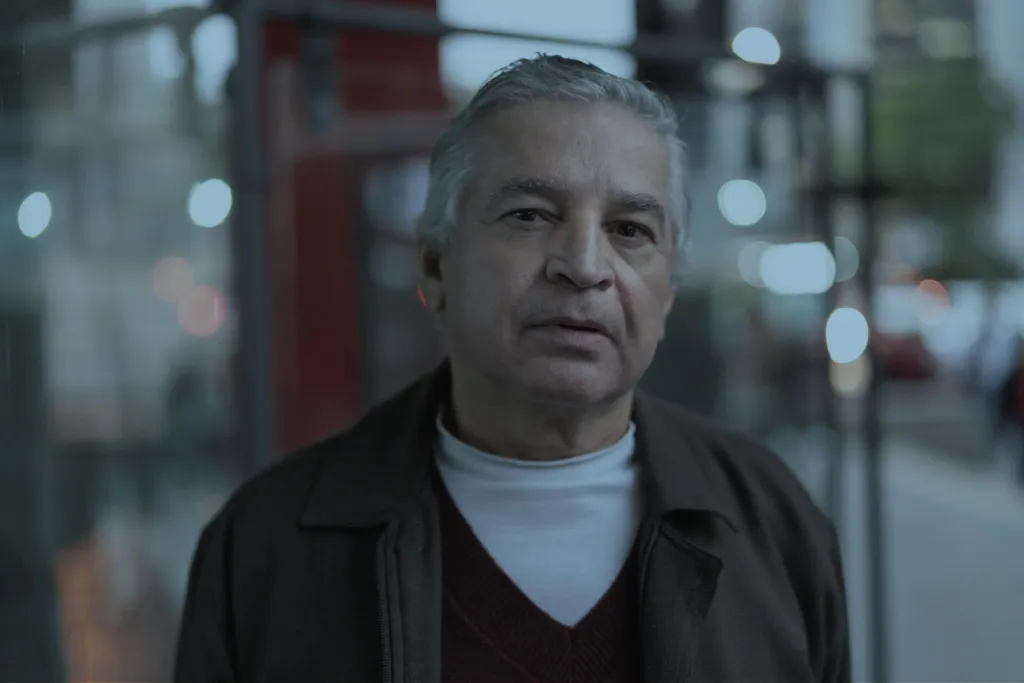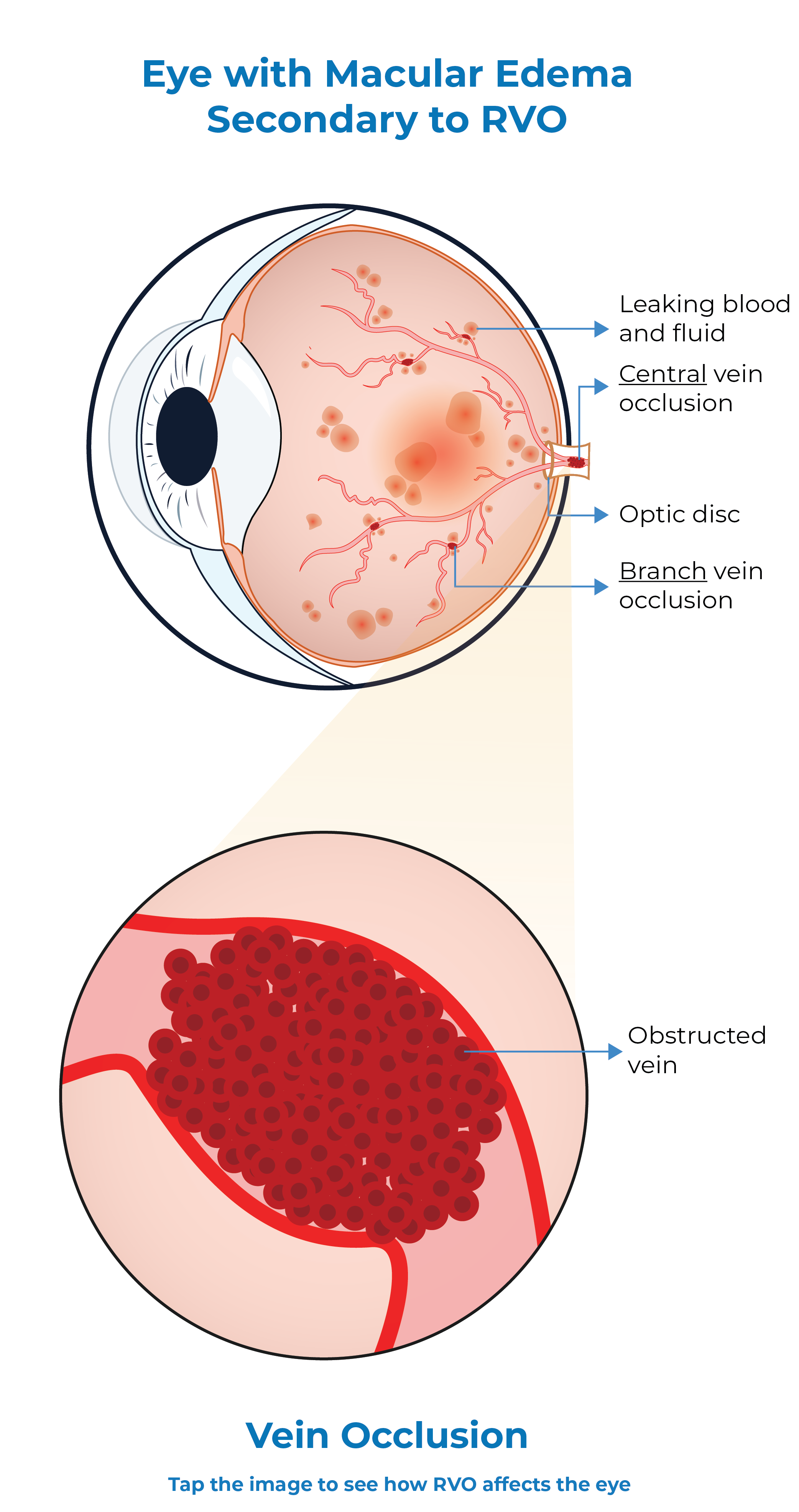WHAT IS RETINAL VEIN OCCLUSION (RVO)?
The retina, the light-sensitive tissue in the back of the eye that helps process visual information, needs a constant supply of oxygen and nutrients delivered by blood vessels. If the veins in the eye become blocked (occluded), the oxygen supply gets compromised. This is known as retinal vein occlusion (RVO) and can lead to permanent vision loss if left untreated.
RVO is characterized by where the blockage occurs. If the blockage occurs in the eye’s main or central vein, it is called central retinal vein occlusion (CRVO). If one of the smaller veins emptying into the eye’s main vein is occluded, it is called branch retinal vein occlusion (BRVO).
A blocked vein prevents adequate blood flow in the affected area. As a result, blood and fluid spill out into the retina. Patients with RVO are at risk for developing:
CURRENT TREATMENT AND LIMITATIONS
Injections in the eye that target the protein VEGF are the current standard of care for treating patients with RVO. These injections are burdensome because they need to be administered every month. Many patients are not able to adhere to this intense treatment schedule, putting them at risk of permanent vision loss.
HOW KODIAK CAN HELP
Kodiak’s Antibody Biopolymer Conjugate (ABC®) medicine in clinical development is designed to address these important challenges by doubling the treatment duration compared to standard of care. Learn more.
REFERENCES
- Laouri et al. The burden of disease of retinal vein occlusion: review of the literature. Eye. 2011; 25:981-988. doi: 10.1038/eye.2011.92









